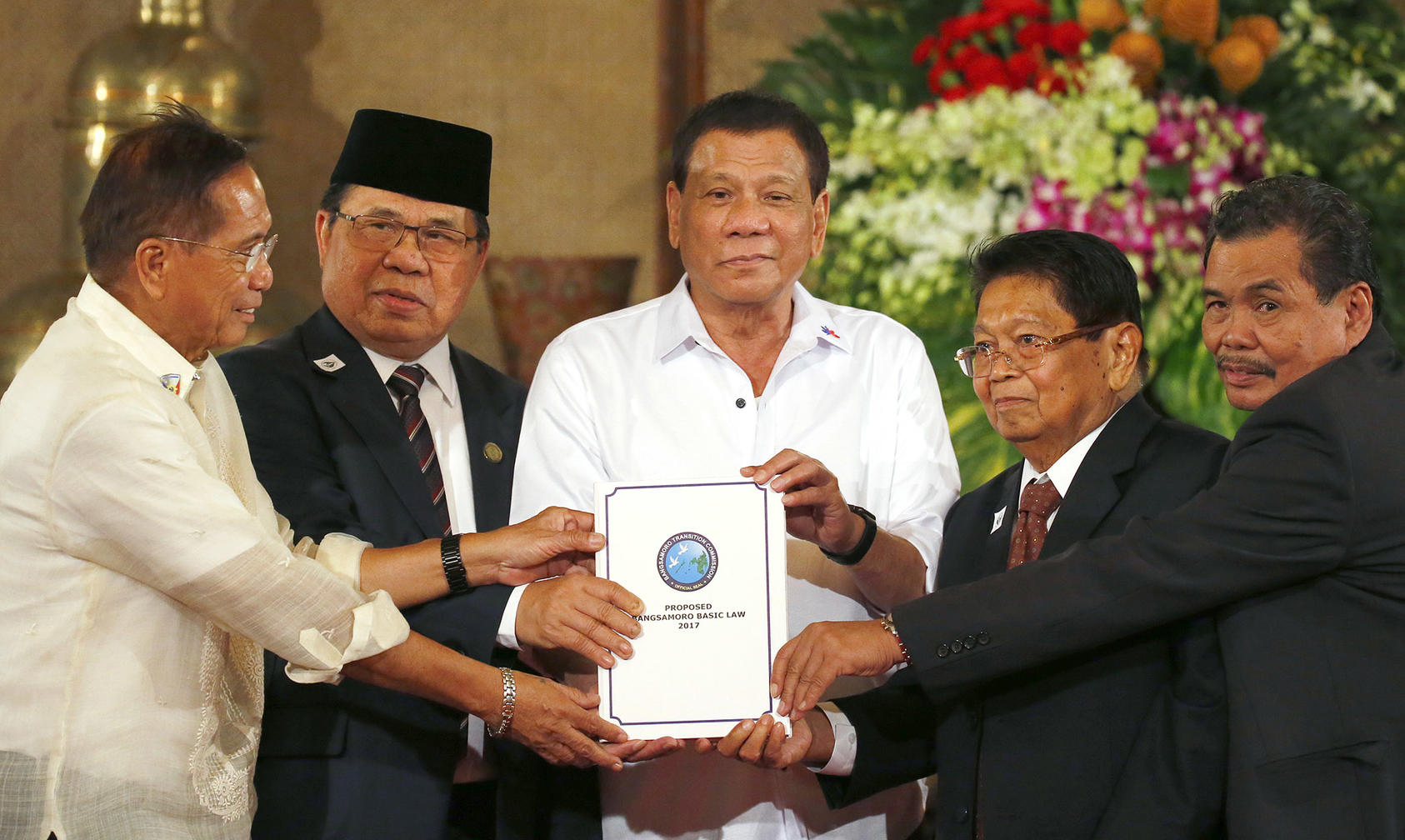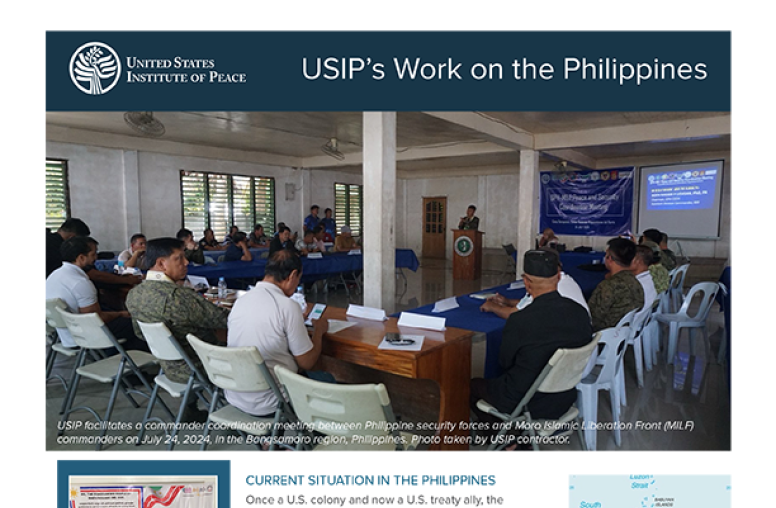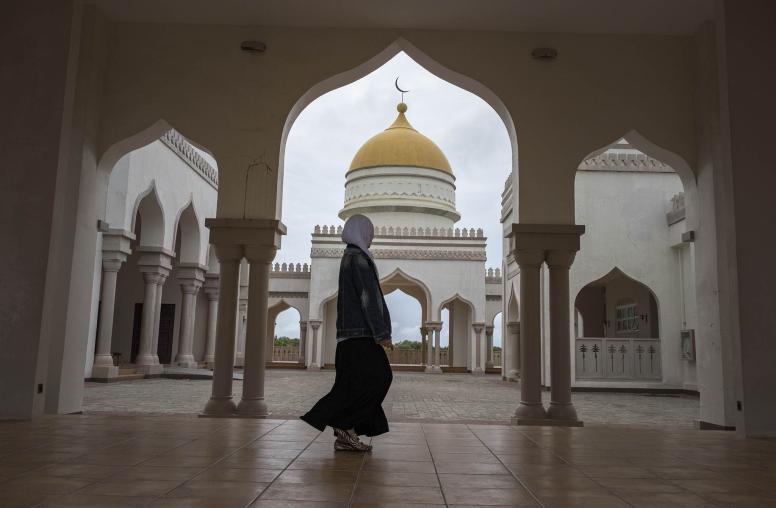The Challenges Facing the Philippines’ Bangsamoro Autonomous Region at One Year
Just over a year ago, the Bangsamoro Autonomous Region of Muslim Mindanao (BARMM) was formally established as part of a peace agreement to end nearly five decades of conflict between the Philippine government and Moro secessionists. This report discusses the many notable achievements of the BARMM government during its first year while cautioning that these accomplishments are not irreversible, and that the BARMM will need international support—including from the United States—to confront future challenges.

Summary
- The Bangsamoro Autonomous Region of Muslim Mindanao (BARMM) was formally established in early 2019 as part of a peace agreement to end nearly five decades of conflict between the Philippine government and Moro secessionists.
- In its first year, the BARMM accomplished several major feats, including forming a transitional government, drafting a regional budget, and overseeing the decommissioning of thousands of fighters.
- Yet the BARMM faces a number of challenges that could undermine the entire peace process, including the task of coalition building in the regional government, which is complicated by intra-Moro competition among rival groups.
- Furthermore, militant Moro groups affiliated with the Islamic State, though small and geographically separated, are a clear danger to the citizens of the BARMM and a potential spoiler to the peace process.
- The gains made by the BARMM are impressive but not irreversible. At this pivotal time, outside help—if it is of the right kind—to support the peace process would be invaluable. The United States has the opportunity to augment the institutional capacity of the BARMM by providing counseling, training, oversight, and financial aid.
About the Report
This report is the result of over twenty years of fieldwork in the southern Philippines, detailed data set analysis, as well as extensive research into the Bangsamoro peace agreement. It is the first thorough analysis of the implementation of the peace agreement, including milestones and shortcomings, and of what needs to happen in the coming years to achieve full implementation.
About the Authors
Zachary Abuza is a professor at the National War College and teaches in Georgetown University’s Security Studies Program, where he focuses on Southeast Asian politics and security issues. He is the author of five books, including Forging Peace in Southeast Asia: Insurgencies, Peace Process, and Reconciliation (2016). Luke Lischin is an assistant research fellow at the National War College, where he focuses and writes on political violence and strategy in Southeast Asia.



